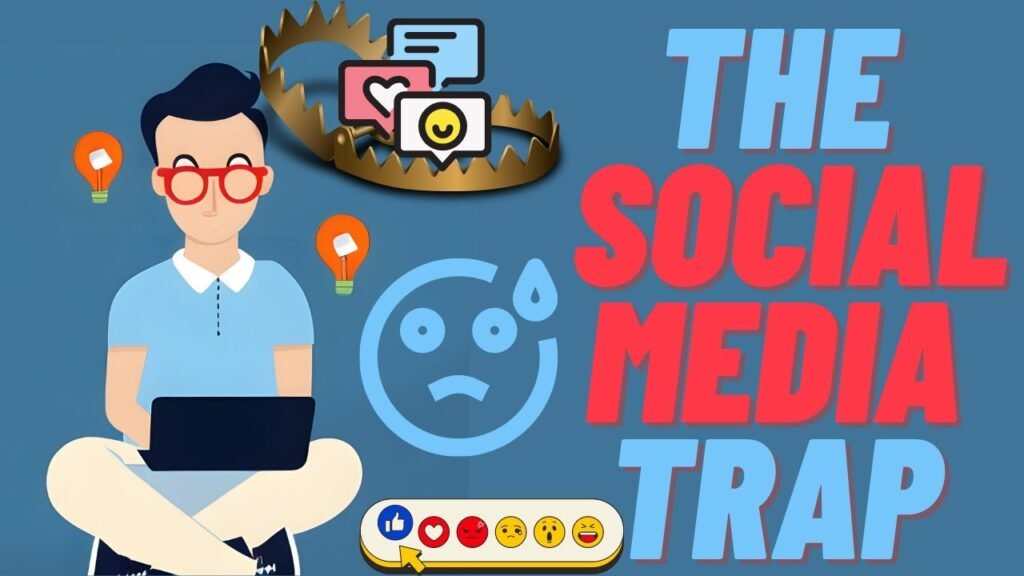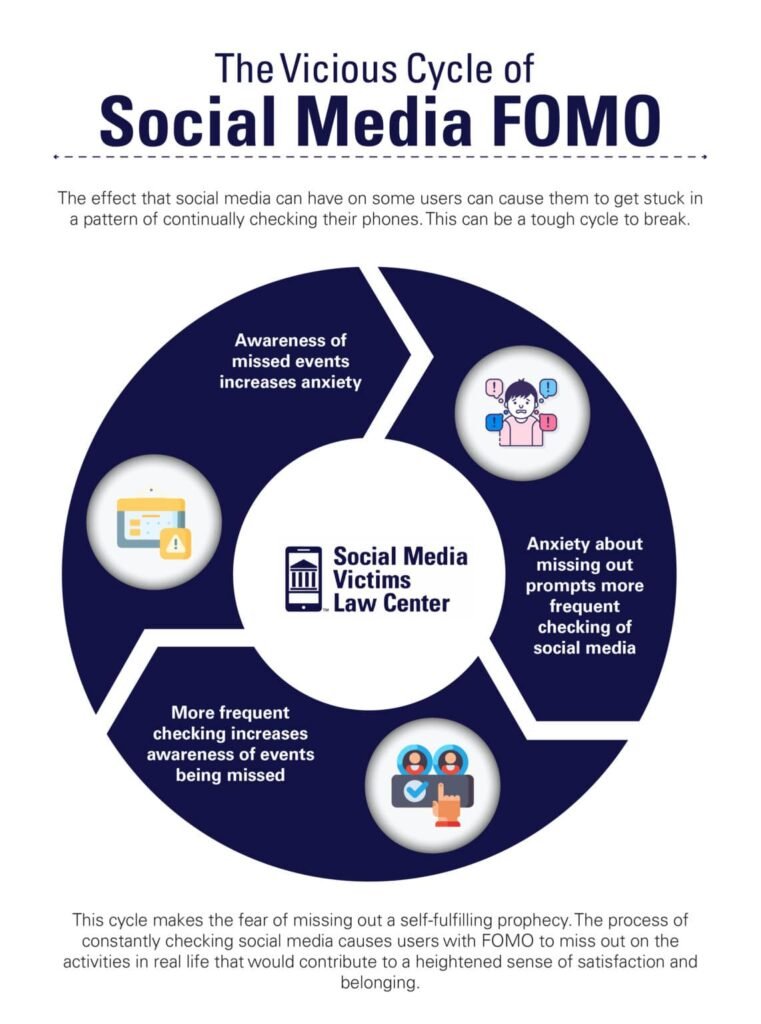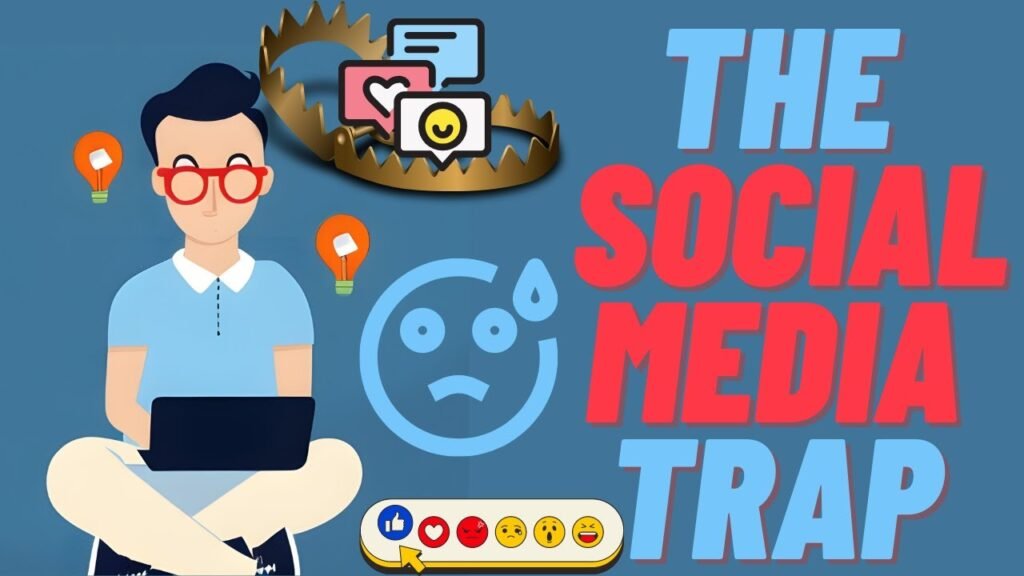How You Are Trapped by Social Media: Understanding the Invisible Chains
Social media is become a part of our daily lives. What was once merely a means of communication and connection has evolved into a very potent instrument that governs our thoughts, actions, and even emotions. However, a lot of people are unaware that they have unwittingly stepped into these platforms’ trap. This essay will explain the psychological traps we fall into, how social media manipulates us, and how to get out of them.

The Allure of Instant Gratification
Instant satisfaction is social media’s biggest pitfall. Our brains use dopamine to reward our actions, and each like, remark, and share provides us a little boost. This dopamine release makes us feel good, so we eventually start to desire more of it. The purpose of social media sites is to perpetuate this loop of connectivity, making it hard to disconnect.
You get alerts, messages, and fresh information as soon as you launch an app, which makes you feel excited right away. However, this thrill is short-lived, and you end up spending more time liking, commenting, and scrolling in anticipation of the next dopamine rush. This never-ending need for approval from others ensnares us.
The Illusion of Productivity
Many people justify their endless hours on social media by claiming they are “staying informed” or “building connections.” While there’s some truth to that, it’s easy to get lost in mindless scrolling, and before you know it, hours have passed with little to show for it.
Social media can give the illusion that we are being productive. Watching videos on self-improvement, following motivational pages, or engaging in industry-related discussions may feel like we are doing something valuable, but the reality is that too much passive consumption can stall our real-world progress.
At the end of the day, most of what we consume online is forgotten within minutes. Yet, the time wasted scrolling eats into hours we could spend on truly productive activities, like learning new skills, reading, exercising, or even just reflecting on our goals.
Comparison Trap: The Thief of Joy
Another significant trap of social media is the comparison game. You might scroll through Instagram and see photos of your friends on vacation, influencers with perfect lives, or people achieving what seems like overnight success. This constant exposure to curated, highlight-reel versions of others’ lives can easily lead to feelings of inadequacy.
When we compare ourselves to others online, we often feel less successful, attractive, or fulfilled. The danger lies in the fact that what we see is rarely the whole truth. People only share what they want others to see, often hiding their struggles, insecurities, and failures. However, these unrealistic standards make us feel as though we are not good enough, trapping us in a cycle of comparison, jealousy, and self-doubt.
Fear of Missing Out (FOMO)
Social media thrives on our Fear of Missing Out, or FOMO. Whether it’s an event, a trend, or even just a conversation, the fear that we’re missing something important keeps us glued to our screens. Platforms like Instagram, Twitter, and Facebook are designed to show us what others are doing in real-time, amplifying our anxiety that life is happening elsewhere, and we’re not part of it.
FOMO creates a feeling of anxiety and inadequacy, driving us to constantly check updates, notifications, and stories. Even when we know that constantly refreshing our feeds isn’t productive, the fear of missing something important keeps us coming back for more. Understand How you ARE trapped by social media

Social Media Addiction
A deeper concern is that many of us don’t recognize how addicted we are to social media. Addiction to these platforms is real, with studies showing that excessive use can lead to depression, anxiety, and loneliness. When you wake up and the first thing you do is check your phone, or you find yourself unable to go a few hours without scrolling through your feed, you may be experiencing the symptoms of social media addiction.
Just like any other addiction, the more time you spend on social media, the harder it becomes to pull away. Even if we realize that social media is harming our mental health, we feel powerless to stop. This inability to log off, even when we know it’s affecting us negatively, is a clear sign that social media has trapped us. Now understand Understand How you are trapped by social media
The Business Model: You Are the Product
It’s important to understand that social media platforms are designed to keep you engaged for as long as possible because the more time you spend on these apps, the more data they collect on your behavior. This data is then used to sell targeted advertisements, making billions for the companies behind these platforms. Essentially, you are the product.
The longer you stay on these platforms, the more personalized ads you see, encouraging you to spend more money on things you probably don’t need. This business model thrives on your constant engagement, which is why social media apps are engineered with features like infinite scrolling, notifications, and algorithmic feeds to make it harder for you to leave. How you ARE trapped by social media
Breaking Free from the Trap
1. Set Boundaries:
To prevent social media from taking over your life, it’s essential to set limits on your usage. Whether it’s designating specific times of the day to check your accounts or using apps to track your screen time, setting boundaries is a crucial step in breaking free
2. Be Mindful of What You Consume
Instead of passively scrolling through content, be intentional about what you follow and engage with. Curate your feed to include content that adds value to your life, whether it’s educational, inspirational, or uplifting.
3. Take Breaks:
Digital detoxes can be incredibly helpful in resetting your relationship with social media. Start small by taking one day off per week or even a few hours each day where you are completely disconnected.
4. Focus on Real-Life Connections:
It’s easy to get so wrapped up in the online world that we forget to nurture real-life relationships. Make an effort to spend quality time with friends and family offline. In-person interactions are far more fulfilling than likes and comments.
5. Reflect on Your Usage:
Ask yourself why you’re reaching for your phone every time you feel bored or anxious. Are you avoiding something in real life? Becoming aware of these patterns can help you understand the deeper reasons for your social media.

Conclusion
Social media has undoubtedly changed the way we connect and interact with the world, but it comes with its own set of traps. From instant gratification to the comparison trap and FOMO, these platforms are designed to keep us hooked, often to the detriment of our mental health and productivity. By becoming aware of how we are being trapped and taking conscious steps to manage our usage, we can regain control and use social media in a way that enhances our lives rather than controlling them. Understand How you are trapped by social media.